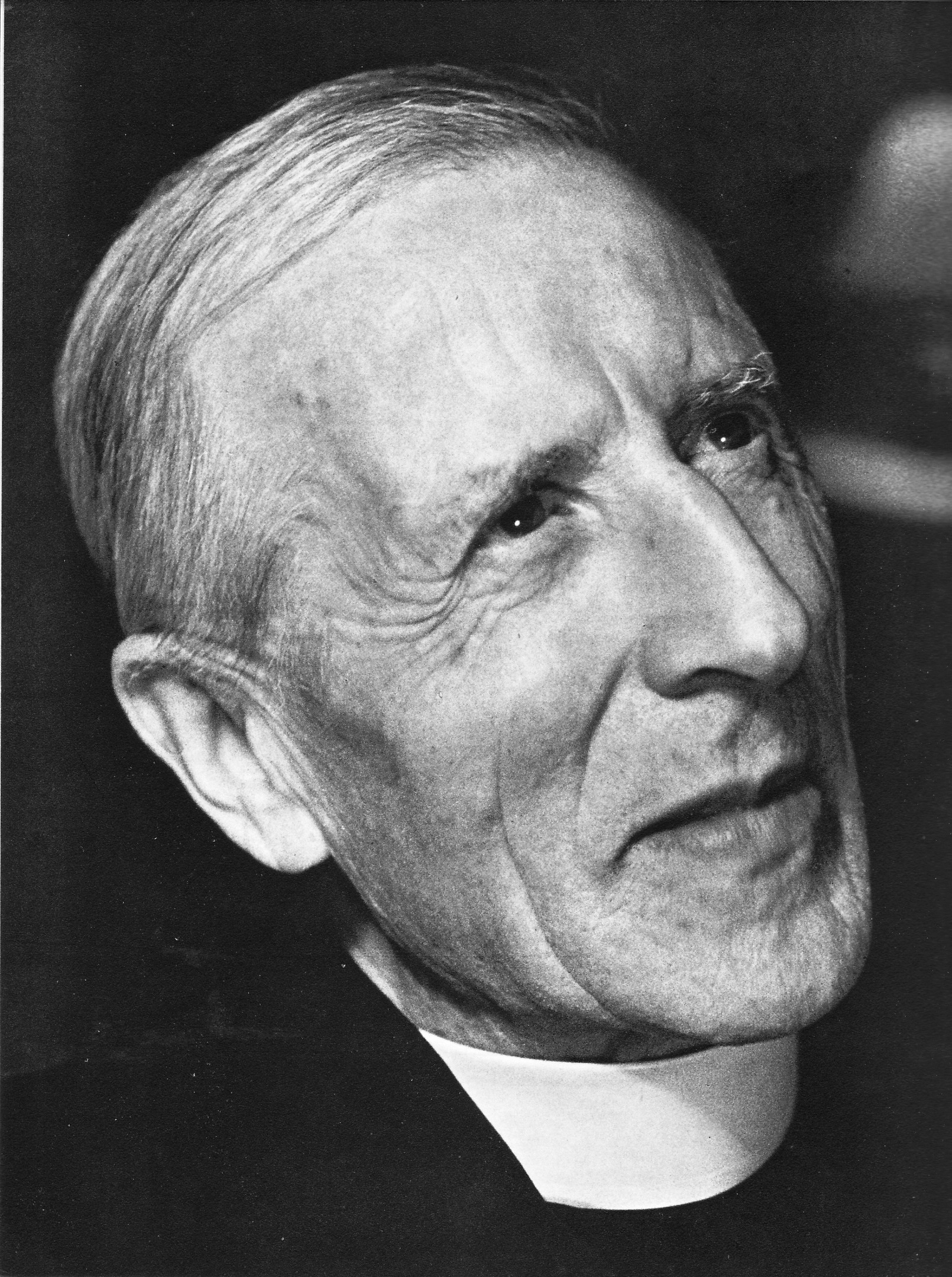Pierre Teilhard De Chardin nejznámější citáty
Pierre Teilhard De Chardin citáty a výroky
1919
Zdroj: aktualne.cz https://magazin.aktualne.cz/kultura/literatura/patril-mezi-ortodoxni-citil-jako-heretik-teilhard-chardin/r~e32db2e6068d11eda25a0cc47ab5f122/ [cit. 2022-07-18]
Pierre Teilhard De Chardin: Citáty anglicky
pp. 70–71 https://archive.org/stream/ActivationOfEnergy/Activation_of_Energy#page/n65/mode/2up
Activation of Energy (1976)
“At the heart of our universe, each soul exists for God, in our Lord.”
The Divinisation of Our Activities, p. 56
The Divine Milieu (1960)
Letter from Cape Town to Father General, Jean-Baptiste Janssens (12 October 1951)
“The future is more beautiful than all the pasts.”
Letter (5 September 1919), in The Making of a Mind: Letters from a Soldier-Priest 1914–1919
“We are like soldiers who fall during the assault which leads to peace.”
The Divinisation of Our Activities, p. 85
The Divine Milieu (1960)
The Divinisation of Our Activities, p. 72
The Divine Milieu (1960)
pp. 273, 287–289 https://archive.org/stream/ThePhenomenonOfMan/phenomenon-of-man-pierre-teilhard-de-chardin#page/n137/mode/1up/,
The Phenomenon of Man (1955)
On Christian Asceticism, p. 100
The Divine Milieu (1960)
“The world can no more have two summits than a circumference can have two centres.”
Epilogue, In Expectation of the Parousia, p. 154
The Divine Milieu (1960)
Letter from Cape Town to Father General, Jean-Baptiste Janssens (12 October 1951)
Preface, p. 43
The Divine Milieu (1960)
Man's Place in Nature https://archive.org/stream/MansPlaceInNature/Mans_Place_in_Nature#page/n101/mode/2up (1966), p. 100
A Sketch of a Personalistic Universe (1936)
“God is inexhaustibly attainable in the totality of our action.”
The Divinisation of Our Activities, p. 63
The Divine Milieu (1960)
pp. 193–195 https://archive.org/stream/ChristianityAndEvolution/Christianity_and_Evolution#page/n191/mode/2up
Christianity and Evolution (1969)
The Divine Milieu, p. 128
The Divine Milieu (1960)
